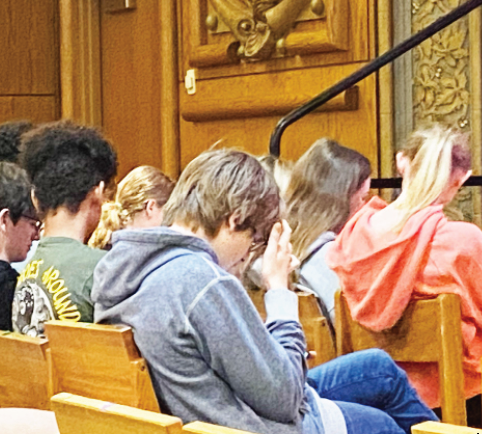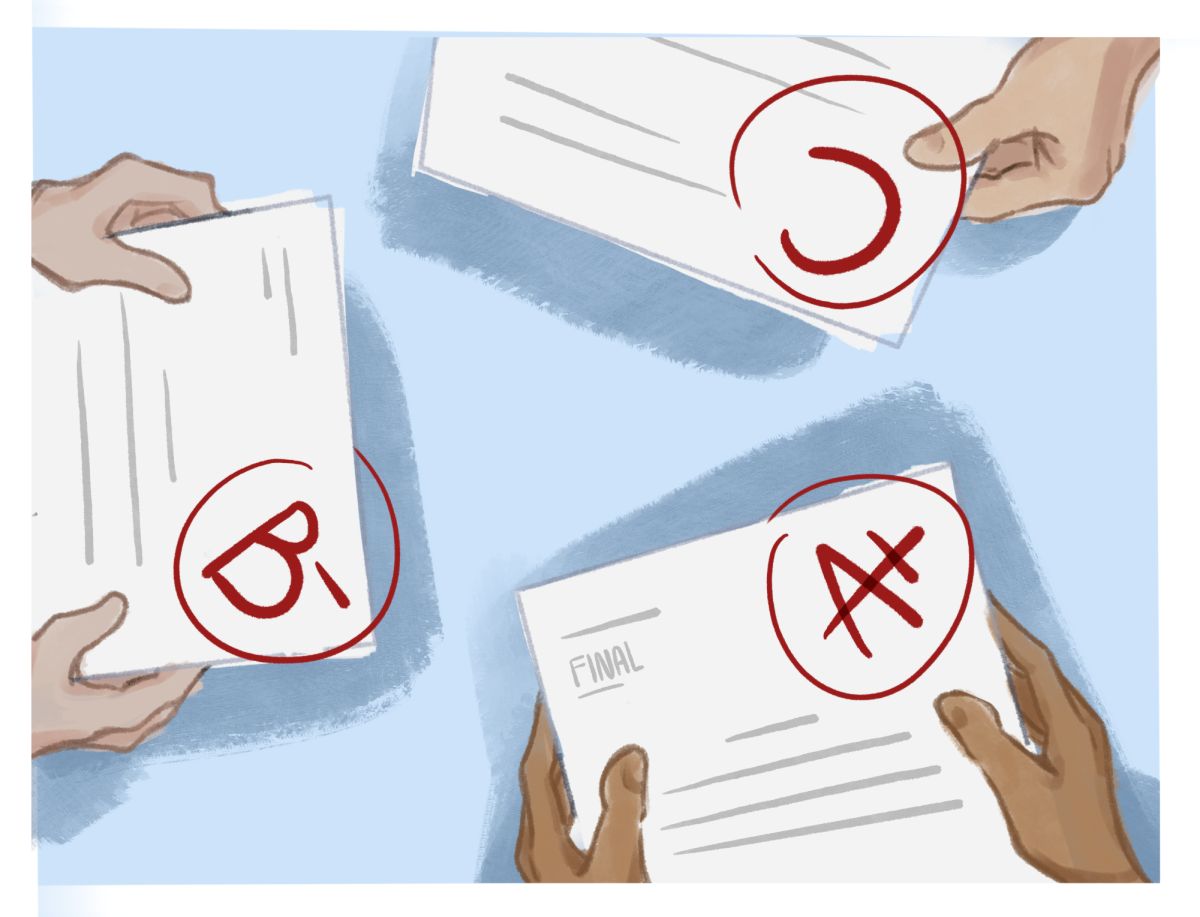
In assembly, there is always at least one kid who is scrolling through social media and at least one teacher who is ready to snatch up their phone. But does this phone policing bring about more annoyance than helpfulness? Personally, I believe that both negative and positive impacts can be created by teachers policing of phones.
On the positive side, being present, respectful, and not on our phones while we are in the JNA together listening to speakers creates a sense of community. Latin teacher Alita Shenk agrees, saying, “[Assembly] is something we do as a community and people should treat other members of the community with respect.” Sometimes, being a respectful audience member does not necessarily involve actively listening, merely sitting up and maintaining eye contact. As someone on stage, seeing someone in the audience who is on their phone or slouching over doesn’t give the best impression and could potentially lead to increased nervousness or feeling insignificant. This readily contributes to weakening the community, which is the exact opposite of what assembly is meant to accomplish.
Ninth grade dean, Jen Vance adds, “Sometimes [students] don’t realize how rude [they] are and the impression it makes on other people like when [they] have [their] phone out and somebody’s giving a speech.” Even as someone who has not been up on stage much in the Juliet Neilson Auditorium (JNA), I can imagine how seeing those in the audience actively on their phones or whispering to their friends could heighten my levels of nervousness. Therefore, since assembly gives us the opportunity to come together as a school, it’s important to take advantage of the time it grants and be, at the very least, respectful to those speaking.
Simultaneously, constant phone policing can become distracting or annoying to students. Jocelyn Jim ’26 mentions, “Sometimes [phone policing] is a bit more distracting than the phones themselves.” I have been subject to those around me being policed by the watchful eyes of the teachers, and sometimes it does feel as if they should just be left to their own devices if they weren’t willing to pay attention to the speakers in the first place. Additionally, the act of passing a phone down the row to a teacher or constantly hearing a teacher’s whispered threats ends up being distracting and annoying for the students in the area.
Overall, phone policing makes sense, but in practice it is tiresome and distracting for both teachers and students. High school is the time to develop self control skills, so just put down your phone and at least pretend to pay attention even if you’re really zoning out. Who knows, you might even get more out of a senior speech than your explore page.






